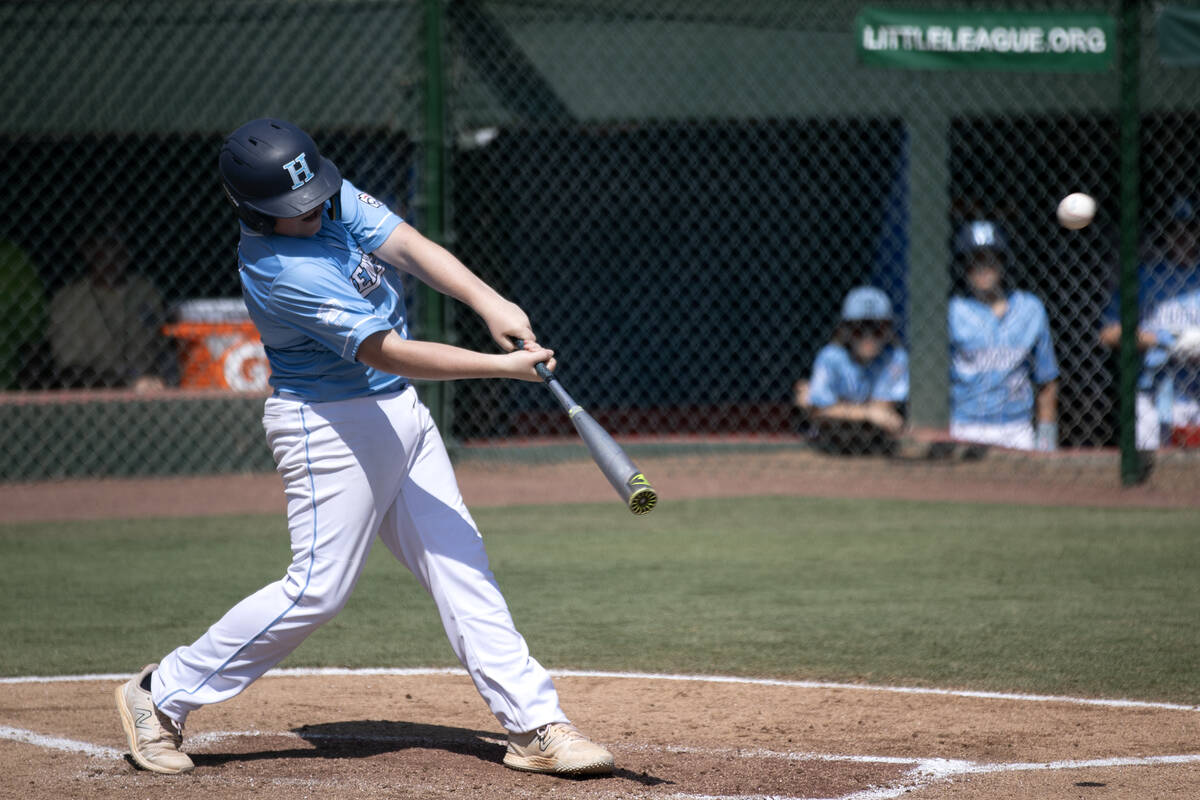VICTOR JOECKS: Education lessons from Little League
If Clark County School District officials want to improve education, they should watch some youth baseball.
I recently finished coaching my sons and their various baseball teams. It was a lot of fun, especially because global warming took a vacation this season. It also left me more convinced than ever that many things school district officials do are counterproductive.
The progress kids make in just a couple of months is remarkable. I wish I could attribute it to my baseball genius, but that wouldn’t be accurate. They improved because they practiced. That included boring drills covering skills such as throwing and fielding.
There’s simply no substitute for practice. Kids fielding grounders need to get their bodies in front of the ball and put their gloves in the dirt. Then, they need to come up into a throwing position and make an accurate throw. And they should get to the point where they do that smoothly, without stopping to think about the steps. That happens only through repetition.
It’s like homework and rote memorization. These are essential building blocks in achieving higher-level skills. Yet, the district’s grading policy minimizes the value of homework, depriving teachers of valuable leverage. Modern education theorists have de-emphasized memorization, a major mistake, especially in math.
In T-ball, the last batter in the lineup runs all the bases. One game, I reminded the runner on second base to run home on the next hit. The batter swung — whack! — and the runner did just what I told him. Bypassing third, he charged toward the pitching mound, running directly to home plate.
Hey, at least he listened to his coach. A little too literally in this case.
To score a run, you can’t skip bases. But to be promoted from grade to grade in school, you don’t need to master fundamental concepts. The most important is to learn to read by grade 3. Sadly, fewer than 40 percent of district third graders are proficient in reading. But district officials will shuffle them forward, increasing the likelihood that they’ll drop out of high school.
Parents can make or break the season. I was blessed to have many willing to jump in and help coach and run drills. The same is true in education. Engaged parents make everything better. Their kids come to school more prepared to learn and have better outcomes. In a class with engaged parents, a teacher can’t fail. In a class without engaged parents, it’s very difficult to succeed.
Many teachers have written to me over the years expressing this. They’re right. But some imply this means that teachers shouldn’t be responsible for student outcomes. That’s a mistake, because it makes teachers out to be no more than highly paid babysitters.
There are a couple of better takeaways here. First, society should promote the fact that children with married parents do better. You can do that while acknowledging the sacrifices of single moms. Second, we should encourage parents to get more engaged by allowing them to choose the school that’s best for their child through school choice.
If district officials made these changes, they’d see many children go from academic strikeouts to home runs.
Victor Joecks’ column appears in the Opinion section each Sunday, Wednesday and Friday. Contact him at vjoecks@reviewjournal.com or 702-383-4698. Follow @victorjoecks on X.


















